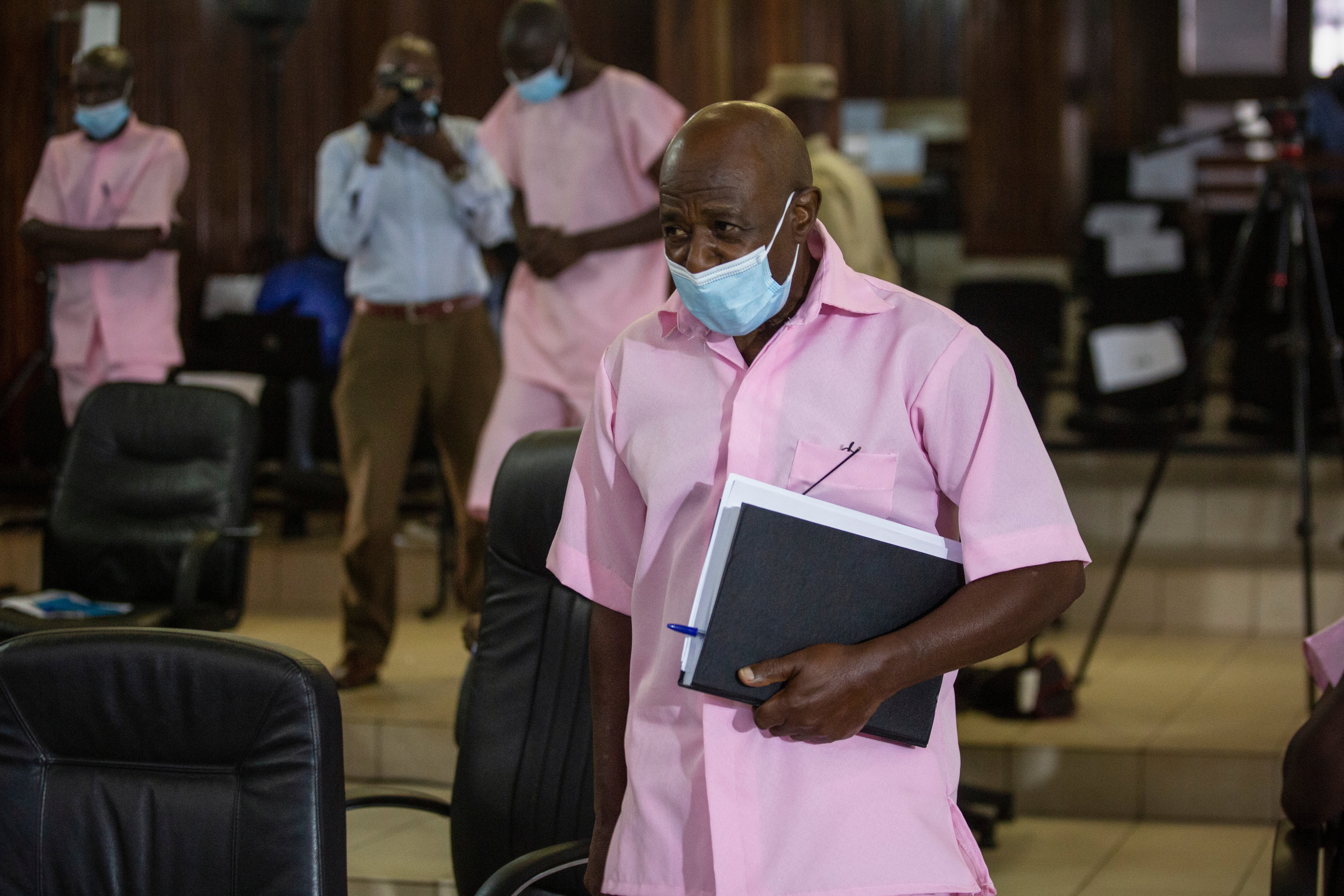Rwanda says Rusesabagina of 'Hotel Rwanda' fame to be freed
Rwanda’s government has commuted the sentence of Paul Rusesabagina, who inspired the film “Hotel Rwanda” for saving hundreds of countrymen from genocide but was convicted of terrorism offenses years later in a widely criticized trial

Your support helps us to tell the story
From reproductive rights to climate change to Big Tech, The Independent is on the ground when the story is developing. Whether it's investigating the financials of Elon Musk's pro-Trump PAC or producing our latest documentary, 'The A Word', which shines a light on the American women fighting for reproductive rights, we know how important it is to parse out the facts from the messaging.
At such a critical moment in US history, we need reporters on the ground. Your donation allows us to keep sending journalists to speak to both sides of the story.
The Independent is trusted by Americans across the entire political spectrum. And unlike many other quality news outlets, we choose not to lock Americans out of our reporting and analysis with paywalls. We believe quality journalism should be available to everyone, paid for by those who can afford it.
Your support makes all the difference.Rwanda's government has commuted the sentence of Paul Rusesabagina, who inspired the film “Hotel Rwanda” for saving hundreds of countrymen from genocide but was convicted of terrorism offenses years later in a widely criticized trial.
Government spokeswoman Yolande Makolo told The Associated Press on Friday that the 25-year sentence was commuted by presidential order after a request for clemency.
Rusesabagina, a 68-year-old U.S. resident and Belgian citizen, is expected to be released on Saturday, she said.
“Rwanda notes the constructive role of the U.S. government in creating conditions for dialogue on this issue, as well as the facilitation provided by the state of Qatar,” Makolo said. President Paul Kagame earlier this month said discussions were under way on resolving the issue.
The case had been described by the United States and others as unfair. Rusesabagina disappeared in 2020 during a visit to Dubai in the United Arab Emirates and appeared days later in Rwanda in handcuffs. His family alleged he was kidnapped and taken to Rwanda against his will to stand trial.
He was convicted on eight charges including membership in a terrorist group, murder and abduction. But the circumstances surrounding his arrest, his limited access to an independent legal team and his reported worsening health drew international concern.
Rusesabagina has asserted that his arrest was in response to his criticism of Kagame over alleged human rights abuses. Kagame’s government has repeatedly denied targeting dissenting voices with arrests and extrajudicial killings.
Rusesabagina was credited with sheltering ethnic Tutsis at the hotel he managed during Rwanda’s 1994 genocide in which more than 800,000 Tutsi and Hutus who tried to protect them were killed. He received the U.S. Presidential Medal of Freedom for his efforts.
He became a public critic of Kagame and left Rwanda in 1996, first living in Belgium and then the U.S.
Human Rights Watch said he had been “forcibly disappeared” and taken to Rwanda. But the court there ruled he wasn’t kidnapped when he was tricked into boarding a chartered flight.
Rwanda’s government asserted that Rusesabagina had been going to Burundi to coordinate with armed groups based there and in Congo.
Rusesabagina was accused of supporting the armed wing of his opposition political platform, the Rwandan Movement for Democratic Change. The armed group claimed some responsibility for attacks in 2018 and 2019 in southern Rwanda in which nine Rwandans died.
Rusesabagina testified at trial that he helped to form the armed group to assist refugees but said he never supported violence — and sought to distance himself from its deadly attacks.
Rusesabagina also has said he was gagged and tortured before he was jailed, but Rwandan authorities denied that. His attorney, Felix Rudakemwa, asserted that Rusesabagina’s legal papers were confiscated by prison authorities.
After his sentence, Belgium’s then-foreign minister, Sophie Wilmes, said that “it must be concluded that Mr. Rusesabagina has not been given a fair and equitable trial.”
Last year, U.S. Secretary of State Antony Blinken met with Kagame in Rwanda and discussed the case. “We still have conviction that the trial wasn’t fair,” Blinken told journalists.
___
Anna reported from Nairobi, Kenya.